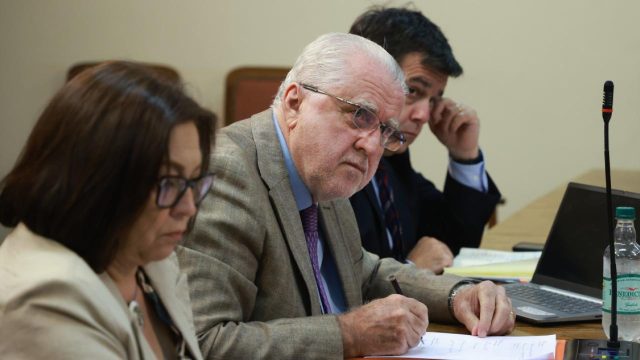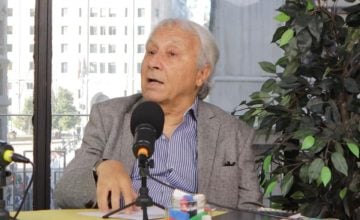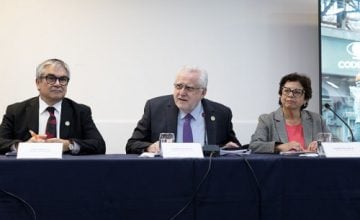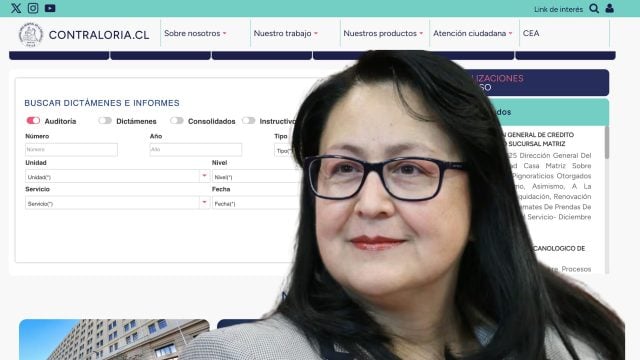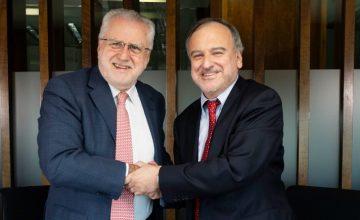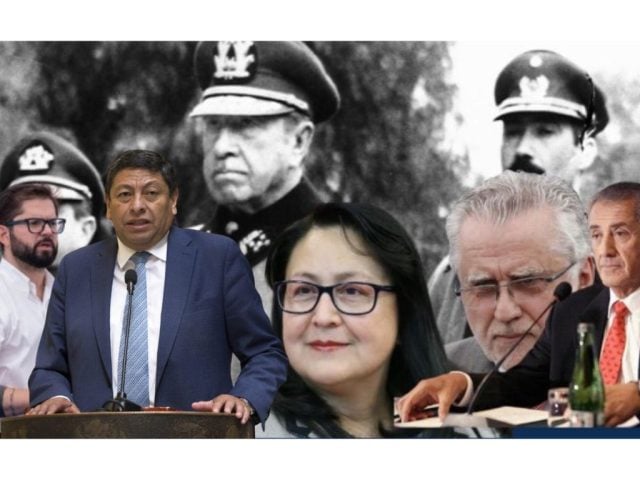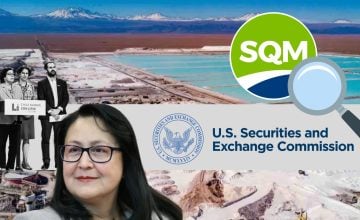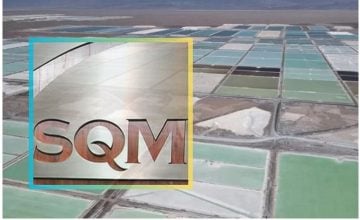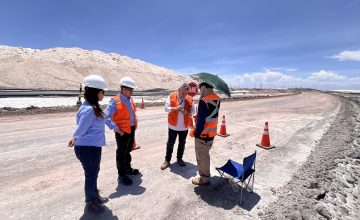In late September, CORFO sent Chile’s Comptroller General the contracts underpinning the controversial Codelco–SQM agreement, a move that would extend the Ponce Pinochet family’s company’s participation in the Salar de Atacama lithium operation through 2060.
According to Codelco, only the Comptroller’s sign-off and approvals from Chinese regulators remain before the deal can be finalized. However, deputy Cristián Tapia, who chaired the Chamber of Deputies’ investigative committee that advised the Executive not to sign with SQM, said the Comptroller is not only validating the negotiation commissioned by CORFO, but is also reviewing all the background submitted by lawmakers, including opaque elements of the talks and SQM’s prior fines.
Attorney and Stock Disponible panelist Mauricio Daza told El Ciudadano that the Comptroller is entitled to request all records from CORFO. He added that, contrary to Máximo Pacheco’s claims, this is not a closed contract: CORFO must ultimately validate it, and its board — which includes several cabinet ministers — still needs to approve the final text.
The planned integration of Codelco and SQM in the ‘Salar Futuro’ project would give the state-owned miner 50.01% of the shares — a single‑share, fragile majority — to control the new lithium carbonate producer.
In early July, the report from a Chamber of Deputies investigative committee recommending that the government not move forward with the agreement passed with 96 votes in favor, just 2 against, and 17 abstentions.
The committee’s chair, deputy Cristián Tapia, submitted the report to the Comptroller for review. Meanwhile, CORFO said in a statement that the audit authority is limited to reviewing the ‘resolutions that approve amendments to the current contracts for leasing mining claims in the Salar de Atacama with SQM’.
Signed in 2018, the current agreements between CORFO and SQM for the exploitation of mining claims in the Salar de Atacama established a lease over 16,000 hectares of the aquifer until 2030, with a take for the Treasury of roughly 40% of profits. As of that date, SQM must return the leased mining claims and installed industrial infrastructure to the public patrimony.
Critics argue that the new lease contracts signed by Codelco through its subsidiary Minera Tarar SpA would prolong the Pinochet family-linked company’s role until 2060 at a cost of ‘zero pesos’, as SQM CEO Ricardo Ramos acknowledged before an extraordinary shareholders’ meeting where he explained the deal with Codelco.
Economist Camilo Lagos — who served on the National Lithium Commission during Michelle Bachelet’s second administration and worked at Cochilco until 2017 — estimates the agreement, as drafted, effectively subsidizes the company that Julio Ponce Lerou recently transferred to Francisca Ponce Pinochet by about USD 5.2 billion. He adds that the public sector would forgo roughly US$4 billion by not operating directly in the Atacama aquifer or calling a competitive tender.
Geologist José Cabello, a Qualified Person (QP) in mining and a member of Chile’s Center for Strategic and Critical Minerals Studies (CEMEC), told El Ciudadano that ‘the basic rule in mining is simple: if you have a world‑class deposit, you should hold 100% of it’.
In an interview with El Ciudadano, he added: ‘I see no technical or economic rationale for doing otherwise. It is shameful for Codelco and Enami to start by giving up 50%. If you control a high‑quality deposit, the first question should be what happens if you operate it at 100%.’
Critics say Pacheco has focused his tenure on handing strategic deposits to private mining companies that compete with Codelco in both lithium and copper. Under the banner of ‘public‑private complementarity’, the chairman of the state miner not only cedes half of the Salar de Atacama operation to SQM, but is pursuing a similar 50‑50 structure in the Salar de Maricunga with Rio Tinto. He also backs a plan to integrate Codelco Andina with Los Bronces, owned by Anglo American, in which Anglo would contribute only 20% of the mines yet capture half of the profits.
Economist and lawyer Julián Alcayaga argues the SQM–Codelco agreement is unconstitutional. Tracing Chile’s mining legislation, he notes that Decree Law 2,886 — which reserves lithium to the State — remains in force. ‘The State holds the reserve over lithium; it is a constitutional right in every deposit where it is found,’ he maintained.
THE HIDDEN COST OF THE NEGOTIATIONS
The Comptroller’s review would entail access to documents that defined key aspects of the deal — records that have stayed outside public scrutiny at the insistence of Codelco board chair Máximo Pacheco, who refused to provide information when the Chamber’s investigative committee requested it.
Pacheco was the chief promoter of the SQM agreement within the Boric administration and even took on the negotiations personally, despite the Atacama salt‑flat claims belonging to CORFO. That was authorized by CORFO’s board on October 5, 2023, in a meeting chaired by then‑Economy Minister Nicolás Grau and attended by former Finance Minister Mario Marcel as well as CORFO’s executive vice president José Miguel Benavente. Journalist Víctor Cofre, deputy director of La Tercera and author of a biography of Julio Ponce Lerou, requested the meeting minutes and found that, of 43 pages, 33 were redacted.
The subsequent talks, led by Pacheco, repeatedly invoked transparency, yet lawmakers on the investigative committee said that amounted to rhetoric used to promote the SQM deal. They reported that he refused to disclose advisory costs, withheld documents, and heavily redacted the materials he did hand over.
On January 22, 2025, during the committee’s first session on Codelco’s dealings with SQM and at the Salar de Maricunga, the state miner’s chairman declined to detail the costs of economic and legal advisory services hired under his watch, including Morgan Stanley, citing a confidentiality clause and the autonomy granted by Codelco’s Corporate Governance Law.
Pressed by committee chair Cristián Tapia, Pacheco would not itemize the Morgan Stanley advisory costs. – No, I will send you the answer, he replied to astonished lawmakers. After further insistence, he said: ‘Let me reiterate that this parliament approved a corporate governance law for Codelco. As a company, we have to manage ourselves commercially. If we signed a contract with a confidentiality clause, I cannot come here and show it.’
Codelco’s Corporate Governance Law (Law No. 20,392) was enacted in 2009 under President Michelle Bachelet, amending the company’s Organic Statute to establish a board modeled on publicly traded corporations. The change shifted senior appointments to corporate management parameters, opening the board of the world’s leading copper producer to executives with careers in private mining or as advisers to multinationals.
At the committee’s most recent session, on March 4, 2025, Codelco board member Eduardo Bitrán — regarded as the architect of the current CORFO–SQM framework for the Salar de Atacama — again declined to provide the Morgan Stanley calculations that supported partnering with SQM.
Bitrán argued that confidentiality ‘works the other way around. We required confidentiality from a company traded in the United States and in Chile. The fee was standard — I honestly do not remember the amount.’
Deputy Cristián Tapia told El Ciudadano: ‘I believe those documents will have to be provided to the Comptroller, one way or another. Remember that SQM was fined for altering water well log information and even by U.S. authorities in 2017 for corruption.’
CODELCO NEGOTIATED ON CORFO’S BEHALF
The lack of transparency is raising suspicions, given the high cost of this type of advisory work and the potential financial losses for the state miner. Daza has also emphasized that Morgan Stanley’s mandate reportedly included an incentive tied to successfully closing the deal with SQM, which would naturally bias recommendations toward sealing the agreement.
The Comptroller’s legal registration (toma de razón) and CORFO’s delivery of the contracts create an opening for full disclosure. Daza notes that ‘the Comptroller must have access to all information required under the contracts. While, due to the corporate governance law, it cannot directly order Codelco, it can request complete records from CORFO. The Comptroller is fully empowered to review CORFO’s documentation.’
Beyond the lawmakers’ complaint, the Comptroller must legally register the contracts that underpin the partnership with SQM, assessing their legality and suitability for the State. It must also validate the Indigenous Consultation conducted by CORFO over the past year, which CORFO deemed completed despite objections from some Lickanantay communities within the Council of Atacameño Peoples.
According to Daza, the Comptroller may also be able to rule on Codelco’s actions. ‘In this case there is a particular factor: CORFO granted a mandate for Codelco to represent the State in this negotiation. When Codelco accepted that assignment — reflected in Pacheco’s letter to Benavente — it assumed the role of the State’s sole representative in the talks. Acting in that capacity, the Comptroller can review the entire negotiation. There is no doubt it can review and request records from CORFO, and it is plausible that it can request records from Codelco, since in this negotiation it acted on behalf of the State of Chile. That was confirmed in the letters exchanged in May 2023 between Pacheco and Benavente.’
Mauricio Becerra R.
El Ciudadano
